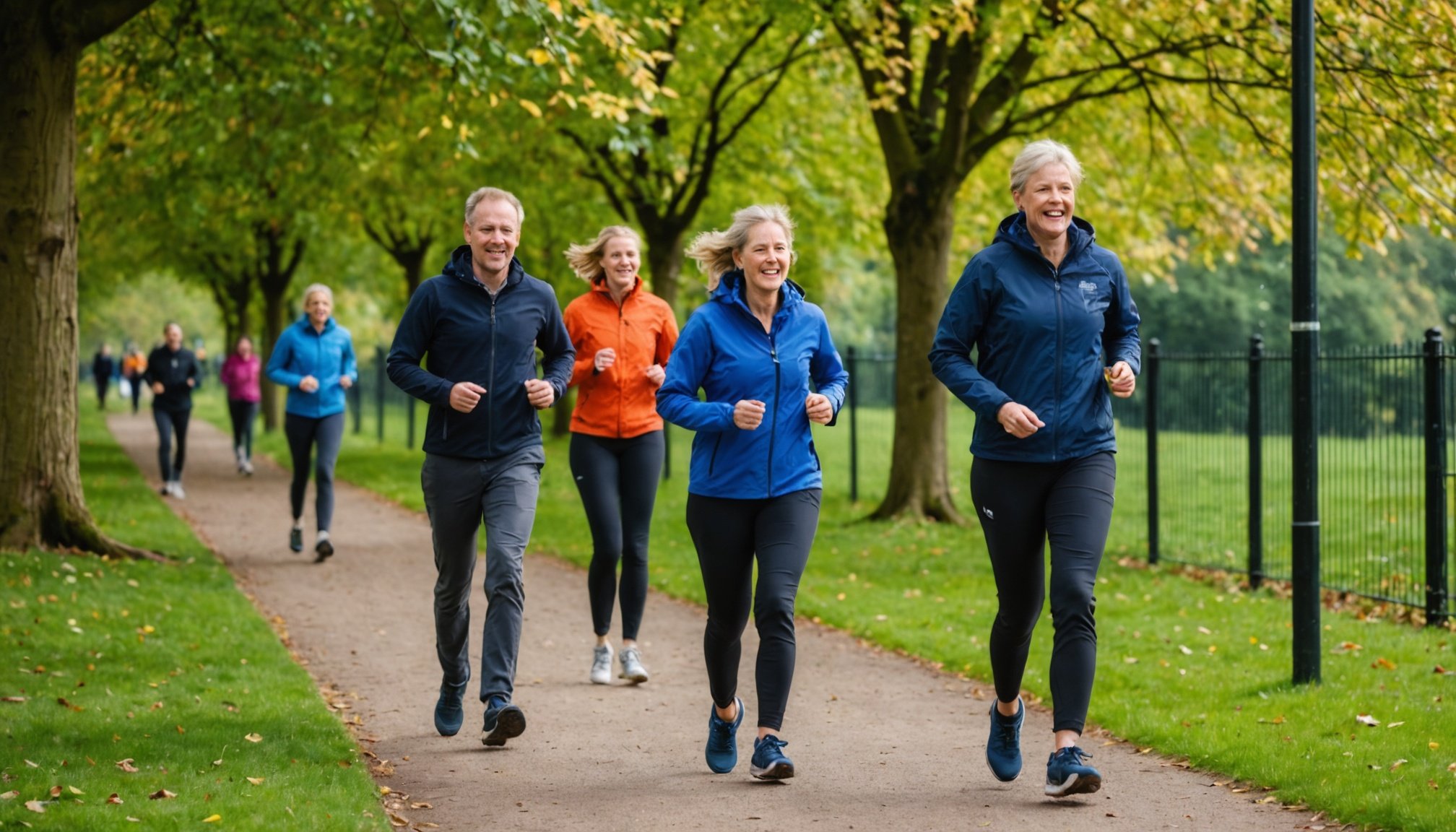In urban environments across the UK, where concrete structures dominate the skyline and green spaces are often limited, outdoor activities can play a crucial role in enhancing mental health. As the hustle and bustle of city life can often lead to feelings of stress and anxiety, it becomes essential to explore the benefits that engaging with nature and participating in physical activities can provide. This article delves into the various advantages of outdoor activities for mental health, showcasing how they contribute positively to the well-being of people living in densely populated areas.
The Connection Between Nature and Mental Health
Being in nature is fundamental to human health. Numerous studies have shown that exposure to green spaces significantly improves mental well-being. For those residing in urban settings, the availability of parks, gardens, and natural reserves can provide a much-needed respite from the demands of city life. When you immerse yourselves in the environment, your stress levels can decrease, and feelings of anxiety and depression may diminish.
Also to read : How can stress management techniques improve workplace health in the UK?
The benefits of nature are profound. Activities such as walking, jogging, or simply sitting in a park allow individuals to unwind. Engaging in these activities promotes a sense of serenity and connection with the environment. For many, this connection is often lost in the urban hustle.
Moreover, studies indicate that even short periods spent outdoors can lead to increased mental clarity and focus. The act of stepping outside, breathing fresh air, and appreciating the beauty around you fosters a positive emotional state. This phenomenon, sometimes referred to as “nature therapy,” highlights the importance of incorporating natural experiences in your daily routine.
This might interest you : What role does hydration play in overall health for UK citizens?
In urban areas, many people may underestimate the value of local parks or community gardens. Recognizing these spaces as vital resources for mental health can help shift perceptions and encourage more individuals to engage in outdoor activities.
Physical Activity and Its Psychological Benefits
Engaging in physical activities outdoors has significant psychological benefits. Exercise, whether through team sports, yoga, or simply a brisk walk in a nearby park, releases endorphins—hormones that improve mood and reduce feelings of stress. This natural high is especially important for urban dwellers who often face challenges such as long commutes, high living costs, and a fast-paced lifestyle, all of which can contribute to mental fatigue.
Regular exercise is associated with lower rates of anxiety and depression. The rhythm of outdoor activities encourages participants to focus on their surroundings and the present moment, effectively diverting attention from the stressors of daily life. Whether it’s running along the Thames or practicing tai chi in a local park, these activities foster a sense of community and belonging, which can be particularly beneficial for people feeling isolated in a crowded city.
Moreover, outdoor physical activities promote a routine that can lead to a healthier lifestyle overall. People who engage in regular exercise often experience better sleep patterns and improved self-esteem, which are crucial components of mental health. Establishing a routine that includes outdoor physical activity not only benefits your body but also nurtures your mind.
Ultimately, taking your exercise routine outside can transform both your physical and mental states. It allows you to enjoy the beauty of nature while also reaping the significant rewards of physical fitness.
Community Engagement Through Outdoor Activities
Participating in outdoor activities in urban environments encourages community engagement, which is vital for mental health. Community activities, whether organized sports, group hikes, or community gardening, foster connections between individuals. These connections combat feelings of loneliness and isolation that can often plague people living in bustling cities.
When you engage in communal activities, you not only benefit from the physical aspect but also share experiences with others, creating a supportive network. Such interactions can enhance your sense of belonging, which is crucial for overall well-being. An engaged community can provide emotional support, encourage participation in healthy lifestyles, and create a shared sense of purpose.
Moreover, community-based outdoor activities often lead to the development of friendships and social networks. These connections can be powerful, helping to mitigate feelings of anxiety and depression. Being part of a group can also motivate individuals to participate in more outdoor activities, as the bonds formed can make these experiences more enjoyable and less daunting.
In urban settings, where anonymity can sometimes be the norm, engaging in group activities can remind you of the importance of community and collective well-being. This can lead to lasting friendships and social ties, which are essential for maintaining mental health in a fast-paced world.
Creating Green Spaces in Urban Environments
The creation and maintenance of green spaces in urban environments are pivotal for encouraging outdoor activities among residents. Urban planners and local governments are increasingly recognizing the need for green spaces to support not only physical health but also mental well-being. Parks, community gardens, and green rooftops are essential for providing areas where people can connect with nature, engage in physical activities, and find respite from the urban landscape.
Green spaces can significantly enhance quality of life by offering areas for exercise, relaxation, and social interactions. When you have access to well-maintained parks, you are more likely to engage in outdoor activities, which can lead to improved health outcomes. Studies show that neighborhoods with more green spaces have residents who report higher levels of happiness and lower levels of stress.
Furthermore, the aesthetic benefits of green spaces cannot be overlooked. A neighborhood surrounded by trees, flowers, and open fields provides visual and sensory pleasure that can uplift spirits. The presence of these spaces encourages people to embrace outdoor activities, be it a simple stroll, a run, or a yoga session in the park.
Local initiatives aimed at creating and sustaining urban greenery can also inspire community involvement. Residents can participate in planting trees, maintaining community gardens, or organizing outdoor events, all of which reinforce the sense of community while enhancing mental well-being. By prioritizing the development of green spaces, urban environments can become more conducive to healthy living, benefiting both individuals and the community as a whole.
The benefits of outdoor activities for mental health in urban UK environments are manifold. Whether through direct engagement with nature, participating in physical activities, fostering community connections, or advocating for green spaces, individuals can significantly enhance their mental well-being. In a world that often prioritizes fast-paced living and urban development, it is crucial to remember the importance of the natural environment in our lives. By embracing outdoor activities and advocating for green spaces, we not only improve our own health but also contribute to a healthier, more connected society.











